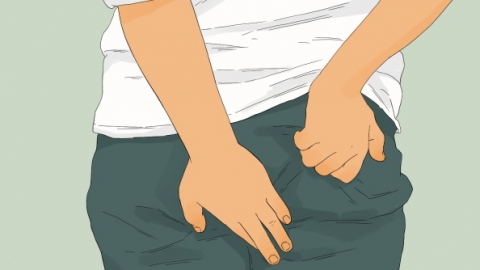Why does cholecystitis cause increased flatulence?
In general, increased flatulence in patients with cholecystitis may be caused by abnormal bile secretion, gastrointestinal motility disorders, intestinal flora imbalance, incomplete food digestion, or inflammation stimulating the intestines. If excessive gas is accompanied by discomfort, it is recommended to seek timely medical evaluation and treatment at a正规 hospital. Detailed explanations are as follows:

1. Abnormal Bile Secretion
During cholecystitis, the gallbladder's contractile function decreases, leading to reduced bile secretion or impaired bile outflow. As a result, fatty foods cannot be fully digested and enter the intestine, where they are broken down by bacteria, producing large amounts of gas and causing increased flatulence. Patients may experience bloating, with symptoms worsening after consuming greasy foods.
2. Gastrointestinal Motility Disorders
Inflammation can irritate surrounding tissues, disrupting normal gastrointestinal motility rhythms. In some areas, peristalsis may accelerate, promoting rapid expulsion of intestinal gas and resulting in increased flatulence. Patients may experience mild abdominal pain, with temporary relief after passing gas.
3. Intestinal Flora Imbalance
Cholecystitis alters the digestive environment, reducing beneficial gut bacteria while increasing harmful ones. These harmful bacteria produce excessive gas when breaking down food residues, leading to increased flatulence. Patients may also experience changes in bowel habits, such as alternating diarrhea and constipation.
4. Incomplete Food Digestion
Insufficient bile impairs the complete digestion of proteins and carbohydrates. Undigested food ferments in the intestine, generating gases such as methane and hydrogen, which cause increased flatulence. Symptoms may worsen after consuming legumes, meat, or other hard-to-digest foods.
5. Inflammatory Stimulation of the Intestine
Gallbladder inflammation may spread to adjacent intestinal regions, irritating the intestinal mucosa and accelerating the transit of intestinal contents, thereby increasing the frequency of gas passage. Patients may feel abdominal fullness or pressure, with tenderness upon palpation in the right upper quadrant.
In daily life, it is important to maintain a light diet, reduce intake of oily, spicy, and gas-producing foods (such as fried foods and legumes), eat meals regularly, and avoid overeating. Taking a walk after meals can help promote gastrointestinal motility. Additionally, maintaining emotional stability and avoiding anxiety or stress helps minimize adverse effects on gastrointestinal function.







